- Home
- Todd Strasser
Summer of '69 Page 14
Summer of '69 Read online
Page 14
With the toe of her cowboy boot, Tinsley crushes out her cigarette. “Who said she knows?”
Three boys, maybe eleven or twelve years old, are standing nearby, staring and whispering. They’re wearing matching gray summer-camp T-shirts. When I give them a curious look, two of the boys nudge the third closer.
“Are . . . are you a boy or a girl?” he asks me, then dashes away toward a yellow camp bus. The other two boys remain a safe distance off, waiting to see how I’ll react. When I turn my gaze on them, one tentatively offers a peace sign. I flash one back, and they excitedly congratulate each other, as if I’m a seal at the zoo and they’ve gotten me to clap my flippers.
“Your mother doesn’t know you’re on your way to Canada?” I ask, returning to the conversation.
“Oh, she does by now. I left a note.”
“What’s going to happen when you get back?”
Tinsley turns her palms upward. “Ce n’est pas important.”
A couple of guys stroll past slowly. Flattops, T-shirts with the sleeves rolled up, jeans, and high-top sneakers. They make no effort to hide their leers as they undress Tinsley with their eyes. She ignores them, but I keep my gaze steady on them.
One of them mouths, Faggot.
Back in Odysseus heading north, I see the first sign for Lake Placid. Suddenly I am ten years old again, and Mom is rushing around the house while I play with my green plastic army men in the den. She calls to me to put on my ski jacket while she tries to wrestle Alan into a coat. As usual, I do as I’m told. But Alan doesn’t want to go anywhere and keeps trying to squirm away.
Mom gives up on the coat. Next, she can’t find one of Alan’s shoes. She tells me to hold Alan’s sticky, nose-picky hand and keep him near the front door while she searches for the shoe.
I hold Alan’s hand, but he keeps trying to yank it free. Mom’s agitation makes me agitated, and I punch Alan in the arm and yell at him to stay still. Alan starts to cry.
Mom comes back without the other shoe. Alan complains that I hit him. Mom scoops him up, and out we go into the cold gray winter afternoon.
In the station wagon, Alan sits in front wearing one shoe and no coat. I’m behind him, a small suitcase on the seat beside me. Mom backs out of the driveway fast, then hits the brake so hard that my head snaps back. I think something must be wrong and start to get scared. Mom drives fast down our street and out to the main road.
We go to the train station. It’s midafternoon, so I assume Dad is coming home from work early and we’re there to pick him up. (This is back when he goes to the city each day and I am excited to greet him when he comes home at night. Before he uses his brilliant business acumen to acquire the chain of Laundromats. Before he becomes the paterfamilias.)
But at the train station, Mom hops out of the car and pulls open the back door. “Hurry!” She grabs the small suitcase.
To Alan, she says, “Stay here. I’ll be right back.”
Why are we getting out of the car? Why did Mom tell Alan to stay? Has she ever left him alone in the car before? What if he tries to drive away?
Bells have started clanging, and red lights flash. Mom squeezes my hand and pulls. She wants us to cross the tracks, but the train is coming. The loud whistle startles me. Everything is backward. The approaching train is headed toward the city, not away from it like when Dad comes home from work. Mom tugs, but I’m scared and pull back. The whistle is too loud, the train too close. The engine looks huge. The crossing gates are coming down. Mom tries again to get me to cross, but I cry out, “No!”
The gates drop and the train passes a dozen feet from us. Close enough that I can feel the heat radiating from the engine. It’s frightening. The iron wheels are nearly as tall as I am. The loud screech of the brakes hurts my ears.
The train is slowing down. Mom waves up and shouts something. We start running toward the back. By the time we reach the last car, the train has stopped. Mom leads me across the tracks behind it. The cold air stinks of diesel fumes. On the other side of the train, a conductor in a dark-blue uniform and small round cap is standing on the steps, looking down at us. I think he must have heard Mom shout. She hands him my suitcase, then quickly hugs and kisses me and tells me to do what the conductor says.
I’m going to the city alone. I don’t know why I’m not more frightened. I’ve never gone anywhere alone except to school or a neighbor’s house. Maybe I’m too young to know I should be scared. Maybe I’m not frightened because the conductor is reassuring when he tells me where to sit and not to go anywhere.
I sit by myself on a broad seat with my suitcase beside me. Some people who pass look around for an adult who should be with me. The conductor checks on me a few times, then gets off the train with me at our final stop, a huge, echoey train station filled with strange smells and surging crowds. Clutching my suitcase tightly, I wait with the conductor. Everyone is grown up, wearing coats and carrying briefcases, their hurried steps slapping on the platform. Then Dad is coming toward us. He’s wearing his fedora and tan camel-hair coat. He thanks the conductor and takes me by the hand.
We climb steps and cross through the huge train station with its crowds and noises and more strange smells. So many shoes and legs and briefcases belonging to men wearing coats and fedoras. I hold Dad’s hand tight and ask where we’re going. He looks surprised. Don’t I remember that we’re going skiing?
We leave Penn Station. The sidewalk is crowded. It’s dark and see-your-breath cold. The city is all streetlights, headlights, car horns, and people in a hurry. A robin’s-egg-blue Thunderbird is parked at the curb. It’s the model with the round portholes in the sides of the roof. A lady with black hair and bright-red lipstick is sitting behind the wheel. Dad introduces her as Hazel. She says “Hello, Lucas” in a perfunctory manner. The car has no back seat, so the three of us squeeze into the front. Hazel smells sweet and flowery. We are going to Lake Placid.
Later that night, I sit on a bed in a room that smells like pine trees. Paintings of mountains and streams with deer and moose hang on the walls, which are paneled with glossy light-brown wood with knots and some round holes where knots must have fallen out. Dad helps me into my pajamas and then into the bed. The sheets feel stiff and scratchy, but I am soon asleep.
In the morning we have pancakes, sausage, and orange juice with Hazel. I don’t remember what is said, but I do remember Dad smiling and speaking in an animated fashion that is different from the somber grumpy way he often is at home.
At the mountain, Dad rents me skis, poles, and boots, then walks me to a J-bar and tells me to ski the broad, gentle slope it feeds. Already adept at the snowplow turn, I pretend I am a white-clad soldier on mountain patrol and have fun riding the J-bar. You are supposed to stand and let the bar make contact just below your butt and pull you up the mountain. But I am small enough to sit on the bar and ride it like a chairlift.
Around lunchtime Dad is waiting at the bottom of the lift. He is wearing his white ski jacket, but instead of stretch ski pants, he has on his gray suit pants and furry après-ski boots. We have lunch in the lodge and then he sends me out skiing again.
That night we have dinner with Hazel. Afterward, I am pooped from patrolling the mountain all day and go straight to bed.
The next morning Dad and I ski together. After lunch, we get into the Thunderbird with Hazel and start the drive home. We stop at a Hot Shoppe on the Thruway, and Dad buys me a bottle of Coca-Cola and a bag of Wise potato chips. These are treats I am normally only allowed to have on very special occasions like birthdays.
That evening we take the train from the city and a cab home from the station. Before we go into the house, Dad tells me not to say anything to Mom about Hazel. I am a dutiful and obedient son and do as I am told.
In the distance, several brightly lit booths span the dark highway. Red-and-white maple leaf flags fly above them. It’s a few minutes after eleven p.m.
Barry rouses from his slumber in the seat beside me and rubs his eyes. “The
border? Shit. Shit!”
I feel a tight chill. There’s only one reason why he’d be so freaked. “You carrying?”
He bites a knuckle. “Zach asked me to bring a couple of lids.”
Were a tachometer measuring my pulse, it’d be redlining. If we can see the border crossing ahead, then the agents in those booths can see us — or see our headlights, anyway. And right now, that’s enough.
Barry has to know what a couple of ounces represents. Possession with intent to sell . . . serious jail time. “Pull over,” he urges. He wants to get rid of the grass.
Too late for that. “It’ll look suspicious. They’ll know why.”
“Shit! Shit!” Barry continues freaking. Tinsley squeezes into the space between the seats and gives me a wide-eyed look.
“Just be cool,” I tell them. Easy to say; I’m gripping the steering wheel so tightly that my fingernails are digging into my palms.
“Fuck,” Barry gripes anxiously. “Fuuuuuck!”
We can’t arouse suspicion. What comes from my lips next isn’t quite shouted but close. “I said cool it!”
Meanwhile, we’re getting closer to the crossing and Barry’s anything but cool. “I got busted last year for possession. My parents kept it quiet and made a deal with the district attorney. It’s why I had to go back to Silver Hill. But I get caught again, it’ll be the slammer for sure.”
We do not want Cousin Barry to go to jail. We don’t want Lucas or Tinsley to go there, either. At least not for drugs. I doubt you get sent to a minimum-security prison with tennis courts for possession with intent to sell.
We’re nearing the booths. Barry slides out of the front seat and into the back. An unzipping sound follows.
“Don’t throw it out the window!” I shout. “We’re too close. They’ll see.”
The border agents are visible through the booth windows. Each one is wearing a dark-blue short-sleeve uniform.
“I’m putting it in your knapsack,” Barry says from the back. “If they search us, you can say you didn’t tell us you were carrying. They’re not that hard on first offenders.”
I don’t know about that. I don’t know about anything right now except the blood loudly pulsing in my ears. Here we come, three degenerate hippie freaks in a psychedelically painted microbus. If I were a border guard, I wouldn’t be wondering if we were carrying drugs. I’d be wondering what kind of drugs and how much. The Canadians may be happy to accept American draft evaders, but I have a feeling they don’t feel quite the same way about drug runners.
We’re about twenty-five yards from the crossing. “Get in the front seat,” I tell Tinsley.
We stop beside a booth, and I take my hands off the steering wheel so my white knuckles won’t be visible. Despite the coursing adrenaline that makes me feel like jumping out of my own skin, I concentrate on trying to appear relaxed. A ruddy-cheeked, heavy-lidded border agent with a blond mustache glances in at us. Maybe it’s my imagination, but it seems like his bushy blond eyebrows rise with extra interest when he sees that we’re freaks. “Identification,” he says.
We hand over our driver’s licenses. He shines a flashlight on them, then on our faces. My insides whirl at hamster-wheel speed. Riding shotgun, Tinsley smoothly takes out a cigarette and lights it. Thank God she’s got her act together. I can only pray that Barry doesn’t suddenly burst out the side door and try to hightail it into the woods.
“What’s the purpose of your visit, Lucas?” the agent asks.
“Weekend jaunt, sir.”
“Oh, yeah? Where?”
“Lake Juliette, sir. My girlfriend’s a counselor at a camp up there.”
“Your girlfriend, eh?” The agent shines the flashlight at Tinsley.
“She’s his girlfriend, sir.” I jerk my thumb toward the back.
The border agent aims the beam into the back of the bus, illuminating Barry, the mattress, the canvases, and the boxes of painting supplies. “Lot of gear for a weekend visit.”
“We’re all painters, sir. Supposed to be some beautiful landscape up that way.”
The border agent aims the flashlight into my face, making me squint. Seconds crawl slowly past. My gut is one solid cramp from throat to butt. The blood courses in my scalp, and I feel a headache coming on.
“Don’t hear the word ‘sir’ much from you longhairs,” the agent says.
Inspiration strikes. I raise a hand to shield my eyes from the flashlight’s glare. “Military family, sir. Got it drummed into me at an early age.”
He lowers the flashlight a bit. “Military, eh? Not dodging the draft, now, are yah?”
“No, sir. I’m headed for college this fall. But to be honest? Were that an issue, I’d probably consider it.”
I’m hoping he’ll find my frank reply endearing, but he merely nods in a cursory way and shines the beam over the brightly painted psychedelia on the outside of Odysseus. “And what’s your military family think of this rig, Lucas?”
“Honestly, sir? Drives ’em out of their freakin’ minds, if you’ll excuse my French.”
The border agent studies me. His expression is unreadable. My innards clench in near spasm. I’ve overdone it. Shit! I’ve definitely sounded too ingratiating. Tried too hard to appear as if nothing is wrong.
The corners of his lips curl upward. He hands back the IDs. “Have a nice weekend painting.”
I drive through the border feeling light-headed, my arms shaking. That was way, way too close.
You know you’re far away from everything when not a single car passes while you stand on the side of the road watching your microbus burn.
Twenty minutes ago, Odysseus’s engine started to sputter. A small red warning light in the speedometer began to glow. Tinsley was sacked out in the passenger seat. Barry was still in the back.
I thought I saw something strange in the side-view mirror. “See anything behind us?”
Barry pushed a box aside, climbed over the duffel, and looked out the back window. “Sparks.”
Definitely not good. Odysseus misfired and continued to lose power. What a night. First we risked getting busted at the border. Then this. It was beginning to feel like the gods were sending a message. A second red warning light began to glow. We were in the middle of an endless Canadian nowhere. Nothing but the dark silhouette of forest on both sides of the road. In the side-view mirror, a trail of orange-red sparks had begun to swarm over the road behind us.
The headlights flickered and dimmed. Odysseus, intrepid traveler and faithful companion, was slowly failing. A short distance ahead, through the bug-spattered windshield, was a road sign: Kemptville 2.
In the seat beside me, Tinsley opened her eyes and sat up. Before she could ask what was happening, Barry yelled, “There’re flames coming out!”
For the second time tonight, his voice was tight and panicky. I heard bustling and looked over my shoulder just as he was reaching for the side door.
“Don’t!” I shouted.
“But . . .”
“Get your stuff together. I’ll tell you when.” All I needed was for him to jump out while we were moving. He’d probably break a leg, if not his skull.
Odysseus continued to slow. The fire was in the engine compartment in the rear. As long as we were moving, I hoped the flames would trail behind and not spread forward into the microbus.
For all I knew, Kemptville might have been nothing more than a bar, a church, and a post office, but we needed to get as close as we could to some form of civilization before we bailed into the vast empty Canadian night.
Odysseus’s headlights flickered one last time, then faded. Everything went black. It was time to abandon my beloved vessel.
Now we’re standing a safe distance away, watching smoke seep out of the engine compartment. The flames have gone out. Every few moments, a small glowing red scrap falls to the road shoulder beneath the bus.
The inky world around us is so still, it feels like time has stopped.
Beside the road, in
a field of tall grass and wildflowers beneath a black star-speckled dome, Tinsley and I lie on our backs under a blanket on the mattress I dragged out of Odysseus. Despite our urging that he wait until morning, Cousin Barry insisted on walking into Kemptville to see if there’s a place to spend the night. I imagine that after years of hardly leaving his house, Barry’s not that keen on sleeping under the stars.
I have never seen a night sky so black, or dotted with so many shimmering pinpricks. But that blackness reflects the gloom weighing on my heart. I suspect that I’m still hours from my ladylove. In the morning, even if we find some sort of public transportation to Ottawa, how will I get the rest of the way to Camp Juliette? Especially before five p.m.?
No answer is forthcoming. I guess I should wait until morning before giving up hope. Meanwhile, I have something else to mourn. It is said that you should never love anything that cannot love you back, but were Odysseus capable of emotion, I am certain the feeling would be mutual.
Unlike Arno, whose dependence on the GTO is probably a mask for feelings of inadequacy. Unlike the paterfamilias, whose pride in his MG “classic” is an advertisement for what he imagines is his maverick entrepreneurial image. My love for Odysseus was born out of its slow, rattling, oil-slurping vulnerability. The bravery with which the microbus forged ahead without power steering, without power brakes, without power, period, in a world increasingly populated by bigger, stronger, brawnier vehicles.
I knew that Odysseus’s leaky four-cylinder fifty-horsepower engine was its Achilles’ heel. (Oops, could Odysseus have an Achilles’ heel? An Achilles’ wheel? What would Miss Landers, she of the Hell’s Grammarians, say about that?) I once looked into having the engine replaced, but the projected cost of parts and labor amounted to more than I’d paid for the entire microbus.
And I think of the real Odysseus, the Greek king for whom my vehicle was christened. The brave warrior who slept many nights under star-filled skies while he journeyed for ten years to reach his home. The stalwart voyager who ordered his sailors to bind him to the ship’s mast so that he would not succumb to the sirens’ song on his quest to reach Penelope, his wife, the woman he loved.

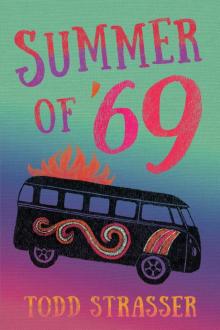 Summer of '69
Summer of '69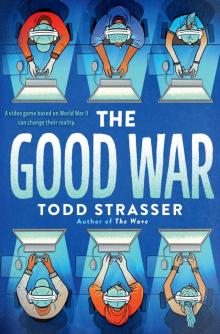 The Good War
The Good War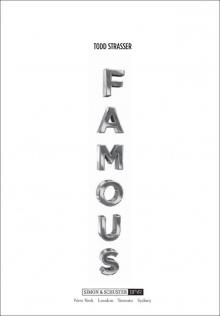 Famous
Famous If I Grow Up
If I Grow Up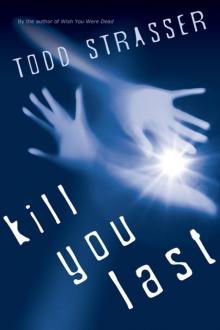 Kill You Last
Kill You Last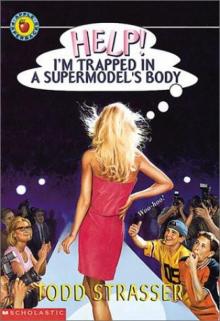 Help! I'm Trapped in a Supermodel's Body
Help! I'm Trapped in a Supermodel's Body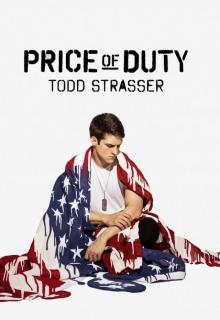 Price of Duty
Price of Duty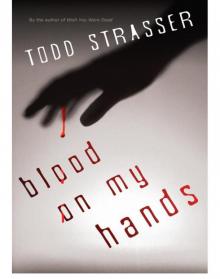 Blood on My Hands
Blood on My Hands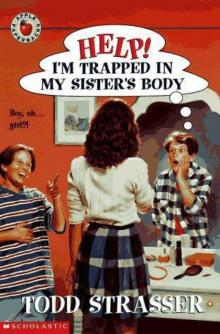 Help! I'm Trapped in My Sister's Body
Help! I'm Trapped in My Sister's Body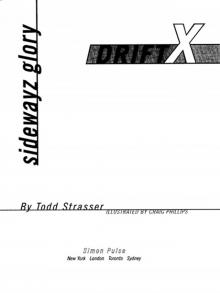 sidewayz glory
sidewayz glory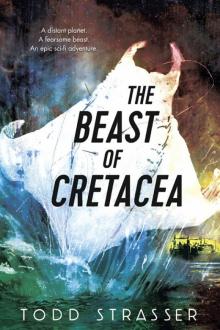 The Beast of Cretacea
The Beast of Cretacea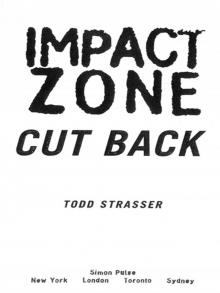 Cut Back
Cut Back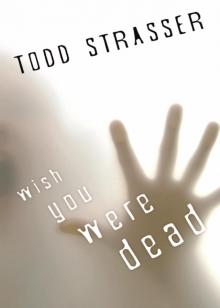 Wish You Were Dead
Wish You Were Dead The Wave
The Wave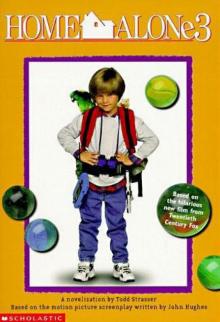 Home Alone 3
Home Alone 3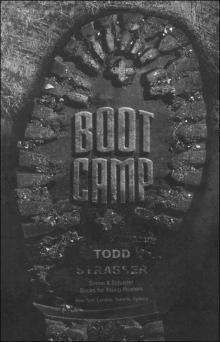 Boot Camp
Boot Camp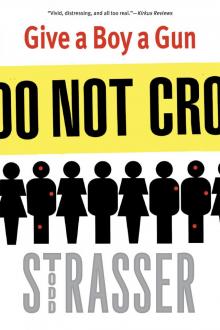 Give a Boy a Gun
Give a Boy a Gun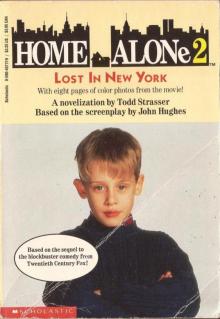 Home Alone 2
Home Alone 2 The Shore
The Shore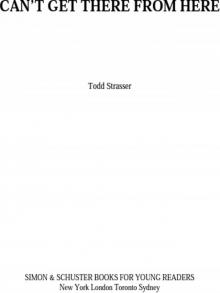 Can't Get There from Here
Can't Get There from Here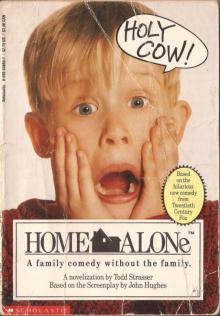 Home Alone
Home Alone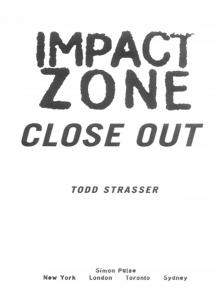 Close Out
Close Out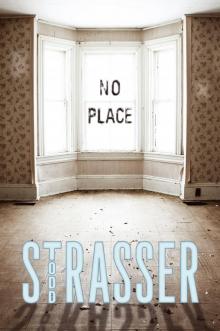 No Place
No Place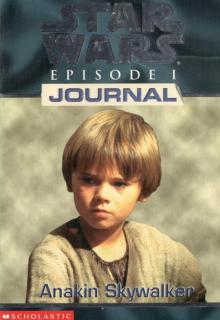 Star Wars - Episode I Journal - Anakin Skywalker
Star Wars - Episode I Journal - Anakin Skywalker